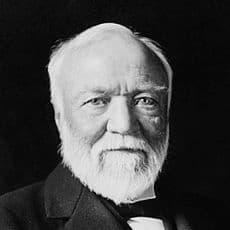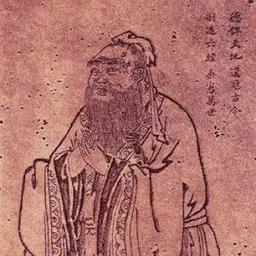131 Quotes
"the AI is a new raw ingredient to help you solve some customer problems that weren’t solvable before. The same old fundamental dynamics of whatever type of business you’re in still apply."
— Nathan Baschez
Advice for Building in AI"AI technology isn’t anyone’s moat—but that doesn’t mean moats will not be built"
— Nathan Baschez
Advice for Building in AI"where does real power and durability come from? From the same sources it always has: economies of scale, network effects, counter-positioning, switching costs, brand, etc."
— Nathan Baschez
Advice for Building in AI"There’s an important difference between growth and hype, and you should care 100% about the former and 0% about the latter. They’re totally independent variables."
— Nathan Baschez
Advice for Building in AI"When art critics get together they talk about form and structure and meaning. When artists get together they talk about where you can buy cheap turpentine."
— Nathan Baschez
Advice for Building in AI"When AI commentators get together, they talk about alignment and defensibility and AGI. When builders get together they talk about where you can buy cheap GPUs."
— Nathan Baschez
Advice for Building in AI"excellence in anything is mostly about working hard and getting a lot of small details right. Execution is exponential. The “big idea” is just a seed. How the seed unfolds is what really matters."
— Nathan Baschez
Advice for Building in AI"Ride a wave — AI is an incredible new “raw material” for developers. It’s likely going to transform a lot of different spaces. You don’t always have to invent a wonderful new thing to make use of it. Be on the lookout for new platforms that offer new opportunities."
— Nathan Baschez
How Lex Happened"Make the sell — early versions of the marketing for Lex were way too modest."
— Nathan Baschez
How Lex Happened"Keep it simple — great products are almost always easy to understand. Don’t over-complicate things because you feel like you haven’t done enough, or that it’s “too easy.”"
— Nathan Baschez
How Lex Happened"Listen to your heart — when you have no idea where something will lead but you think it’s cool, try to find a way to do it. You never know."
— Nathan Baschez
How Lex Happened"“The next frontier for content recommendations is going to be AI merging content rather than users flipping between articles. Imagine an app that is a continuous article and writes itself as you read based on its understanding of your interests & your interaction with the content.”"
— Nathan Baschez
The Infinite Article"It’s important to identify the low-hanging fruit in these types of situations. Where are the trade-offs the least severe? This is known as a wedge, and it can be accomplished by narrowing the initial product and/or the initial market."
— Nathan Baschez
The Infinite Article"Tesla started at the high-end, where people were willing to pay so much money for an electric sports car that economies of scale didn’t matter."
— Nathan Baschez
The Infinite Article"YouTube started with personal videos people wanted to embed on their MySpace pages, rather than professionally created content (and all the concomitant legal headaches)."
— Nathan Baschez
The Infinite Article"Uber started in San Francisco thanks to its hills, poor taxi or public transit availability, lack of parking, and lots of wealthy tech workers."
— Nathan Baschez
The Infinite Article"One of the easiest tasks for current LLMs is summarizing news articles."
— Nathan Baschez
The Infinite Article"Google search is the closest thing we have today to the infinite article — especially now that they’re pulling information out of articles and displaying it directly on the search results page."
— Nathan Baschez
The Infinite Article"when it comes to true personalization, nobody knows more about our prior information consumption than Google, so they’ve got a head start in that department."
— Nathan Baschez
The Infinite Article"They trained the latest model of GPT-3 with information up through June 2021, which means it doesn't know anything that happened after that."
— Nathan Baschez
The Infinite Article"when Unsplash (the free photography website) was founded in 2013 it killed the old vibe by democratizing access to great photography, and thereby ruining its function as a costly status signal."
— Nathan Baschez
DALL·E 2 and The Origin of Vibe Shifts"Now that we have DALL·E 2 (and other AI image generators), a huge portion of visual vibes will become democratized. What Unsplash did to photography, DALL·E 2 will do to illustrations, 3D renderings, and eventually all visual styles."
— Nathan Baschez
DALL·E 2 and The Origin of Vibe Shifts"The best and most reliable type of signal is known as a “costly” signal because it’s hard to fake."
— Nathan Baschez
DALL·E 2 and The Origin of Vibe Shifts"The primary function of visual aesthetics in corporate design, in my view, is to send a costly signal to prospective partners that the company is fit to survive."
— Nathan Baschez
DALL·E 2 and The Origin of Vibe Shifts"Cheap-looking design often signals a lack of resources and taste."
— Nathan Baschez
DALL·E 2 and The Origin of Vibe Shifts"When a design uses a premium material like an illustration or an intricate 3D rendering, it is seen as an honest “costly signal” that the company behind it has lots of resources to spare. This, more than grid alignment or proper typographic hierarchy, is the thing that sends a tingle down your spine and makes you think “I should sign up.”"
— Nathan Baschez
DALL·E 2 and The Origin of Vibe Shifts"The weird thing is, what gives you goosebumps today might feel lame in 20 years. Just look at the “pre vibe shift” websites above—at the time I can promise you they made nerds like me drool. Today… not so much."
— Nathan Baschez
DALL·E 2 and The Origin of Vibe Shifts"in order to maintain the same level of performance you’re used to getting, you have to keep improving. This is known as a Red Queen’s Race"
— Nathan Baschez
DALL·E 2 and The Origin of Vibe Shifts"At the high end, in the short run I think the most likely path is to run towards interactivity. There are currently no AIs that can make interactive visualizations."
— Nathan Baschez
DALL·E 2 and The Origin of Vibe Shifts"I think the leading edge of aesthetics will probably always involve human skill, even if the methods we use to channel that skill will change dramatically. When it comes to relative-performance games, we should think of AI tools more like an instrument that can be played well or poorly, and less like a replacement for humans."
— Nathan Baschez
DALL·E 2 and The Origin of Vibe Shifts"when it comes to status games, relative performance is what matters. And human+AI is probably going to beat AI alone for a long time."
— Nathan Baschez
DALL·E 2 and The Origin of Vibe Shifts"Just like anyone under ~35 is considered to be “internet native,” today’s kids will be considered “AI native.”"
— Nathan Baschez
DALL·E 2 and The Origin of Vibe Shifts"“Content is where I expect much of the real money will be made on the Internet, just as it was in broadcasting.”"
— Nathan Baschez
Why Content is King"I think great media businesses are massively underrated and misunderstood in technology circles."
— Nathan Baschez
Why Content is King"In my experience with Hardbound, Gimlet, Substack, and now the Everything bundle, I’ve come to believe that content can create incredibly strong moats."
— Nathan Baschez
Why Content is King"The bigger you get, the more you can invest in creating ever higher-quality content. And the better your content, the more cash it generates, the more you can reinvest to increase the quantity and quality of your output."
— Nathan Baschez
Why Content is King"Newsletter writers who spend all their time researching and writing tend to outcompete those who only spend a couple hours a week. Low-budget winners like Joe Rogan and Blumhouse are the exception, not the rule."
— Nathan Baschez
Why Content is King"They don’t primarily scale by increasing quantity, they scale by increasing quality. They’re aiming for hits. And they develop creative ways to reduce that risk by spending more."
— Nathan Baschez
Why Content is King"Most people think network effects only apply to communication platforms like Facebook, YouTube, and Slack. But narratives can also have network effects."
— Nathan Baschez
Why Content is King"Why should people care if anyone else has seen their favorite show? Because shared experiences are the basis of mutual understanding."
— Nathan Baschez
Why Content is King"Ultimately, each new unit of content is a new unit of culture. The more popular the unit becomes, the more it gets woven into the basic fabric of society, the harder it becomes to avoid knowing it."
— Nathan Baschez
Why Content is King"why languages have network effects — the more people that speak a language, the more valuable it is to speak that language — so why shouldn’t content not reflect that basic dynamic?"
— Nathan Baschez
Why Content is King"The practical upshot is you should focus on doubling down on your wins. Once you have something that feels like it has the potential to be a narrative that many people connect with, it’s probably better to amplify and extend that than it is to muddle the waters with a bunch of other stuff."
— Nathan Baschez
Why Content is King"As Nathan Barry, founder of ConvertKit, once told me: you want to build a skyscraper, rather than a strip mall."
— Nathan Baschez
Why Content is King"The incumbents can’t copy the startups’ content, or they’d make the product worse for their existing customers."
— Nathan Baschez
Why Content is King"If you’re building a new media brand, it can help to do things your establishment competitors wouldn’t be willing to countenance."
— Nathan Baschez
Why Content is King"If you’re managing an incumbent media brand, it can be useful to incrementally stretch towards new, younger audiences as much as you feel you can stomach."
— Nathan Baschez
Why Content is King"Typically high switching costs are caused by products that are highly complex, and deeply integrated into their customers’ operations."
— Nathan Baschez
Why Content is King"people tend to have stable interests once they reach adulthood."
— Nathan Baschez
Why Content is King"Brands are the sum of the perceptions people have about products and companies."
— Nathan Baschez
Why Content is King"When quality is uncertain, and When people want to associate with the brand in order to signal something about themselves"
— Nathan Baschez
Why Content is King"Most content out there is junk and not right for us. But some of it is amazing. Brands are the only way we can reliably navigate to the good stuff."
— Nathan Baschez
Why Content is King"We tell people about stuff we like in order to communicate something about ourselves, but it only works if other people know what the signal means."
— Nathan Baschez
Why Content is King"one of the main ways people decide what content to consume is by listening to recommendations from people they respect."
— Nathan Baschez
Why Content is King"With content, the ultimate cornered resource is creative talent. Creators can’t be separated from their creations."
— Nathan Baschez
Why Content is King"This year we’ve seen dozens of prominent journalists break away from their publications in order to go independent on Substack. The reason it’s possible is because their fans care about their creativity more than the company they used to work for."
— Nathan Baschez
Why Content is King"Companies that master a complex, opaque process to create superior value are said to have “process power.” The key here is that the process be extremely difficult to copy, and yet be critical to creating the benefits customers most value."
— Nathan Baschez
Why Content is King"The creative process is also incredibly complex and opaque. Every successful creator has to cultivate their own information ecosystem, prototyping process, and methods for polishing their work."
— Nathan Baschez
Why Content is King"solely focusing on serving the needs of one niche first before expanding to others—is a market wedge."
— Nathan Baschez
The Market Wedge: How to Pick Your Initial Market"A wedge is a method for spending limited resources strategically. You pick one thing, do it well, then use that momentum to expand later."
— Nathan Baschez
The Market Wedge: How to Pick Your Initial Market"“product wedges,” where you make your initial product as easy to adopt as possible—even to the point where you sacrifice profitability and defensibility"
— Nathan Baschez
The Market Wedge: How to Pick Your Initial Market"A market wedge, on the other hand, is basically the inverse of a product wedge. Instead of sacrificing power for growth, you sacrifice growth for power, and focus on a small niche within the larger market you’d eventually like to reach."
— Nathan Baschez
The Market Wedge: How to Pick Your Initial Market"By limiting who you aim to serve, you have a better chance of developing some power within that market early, like network effects, brand, economies of scale, etc."
— Nathan Baschez
The Market Wedge: How to Pick Your Initial Market"List the main types of market wedges (geography, topic, product category, community, demographic) with a few good examples for each—and some counter-examples. Explain the key mechanics that make market wedges work. Explore what makes a good initial niche to choose."
— Nathan Baschez
The Market Wedge: How to Pick Your Initial Market"The first is BuzzFeed’s announcement that it will use AI to create personalized quizzes (e.g., “Answer 7 Simple Questions and AI Will Write a Song About Your Ideal Soulmate”)."
— Nathan Baschez
The Endgame for AI-generated Writing"The second is CNET’s experiment using AI to generate SEO-optimized explainer articles, such as “What is an Annual Percentage Yield?,” some of which apparently contained significant inaccuracies and plagiarism."
— Nathan Baschez
The Endgame for AI-generated Writing"People want to know the source of the information they read. Therefore, watermarking tech* will become a standard feature of LLMs provided by large AI companies that want to keep their reputations intact."
— Nathan Baschez
The Endgame for AI-generated Writing"Before the algorithm decides what the next token should be, it runs some math on the previous token to deterministically generate a “greenlist” of allowed possible next tokens and a “redlist” of tokens it should not say next."
— Nathan Baschez
The Endgame for AI-generated Writing"Today we live in the Wild West of AI, but once you can discern AI-generated text 80–90% of the time, anyone who wants to avoid it will be able to do so with a browser extension."
— Nathan Baschez
The Endgame for AI-generated Writing"So where do people go to find text content? Primarily Google."
— Nathan Baschez
The Endgame for AI-generated Writing"What Beres and the anonymous CNET writer fail to take into account is that AI-generated content completely changes the economics of SEO in a way that is unsustainable and self-cannibalizing."
— Nathan Baschez
The Endgame for AI-generated Writing"What about the AI-generated articles that do manage to make it to the top of search results? Presumably they are at least decent. The only reason they’d show up there is because humans chose to link to them or other pages on the website they live on."
— Nathan Baschez
The Endgame for AI-generated Writing"Mediocre SEO content is dying anyway, and that’s a good thing"
— Nathan Baschez
The Endgame for AI-generated Writing"I don’t think there’s anything wrong with people consulting an AI like ChatGPT instead of searching Google and navigating through a list of links."
— Nathan Baschez
The Endgame for AI-generated Writing"To be clear, ChatGPT and its ilk are not good enough yet."
— Nathan Baschez
The Endgame for AI-generated Writing"I don’t think they’ll be able to beat human writers who publish personal, thoughtful, voice-y writing."
— Nathan Baschez
The Endgame for AI-generated Writing"They will cultivate trust and earn permission to deliver content directly, rather than needing to show up in Google to gain readers. This is a better arrangement for everyone."
— Nathan Baschez
The Endgame for AI-generated Writing"Markets won’t solve everything, but they will solve for junk AI content"
— Nathan Baschez
The Endgame for AI-generated Writing"But the pollution scenario I just described is a classic market failure mode: negative externalities. It happens when there is no incentive for buyers or sellers to forgo a transaction if it benefits both of them but harms a third party."
— Nathan Baschez
The Endgame for AI-generated Writing"So what is the negative externality with AI-generated content? I don’t think there is one."
— Nathan Baschez
The Endgame for AI-generated Writing"Eventually this will sufficiently damage the media company’s reputation and revenue to cause it to either fix the problem, stop using AI, or lose readership."
— Nathan Baschez
The Endgame for AI-generated Writing"Some might argue that AI-generated content creates a negative externality if the AI plagiarizes other writers. If that happens, the writers it plagiarizes are harmed, but the media company and its readers may still benefit and therefore have no incentive to stop transacting—in theory, at least."
— Nathan Baschez
The Endgame for AI-generated Writing"This is proven in practice, because almost universally, media companies—including CNET—react quickly when they realize they have published something plagiarized. That’s not what happens in negative externality scenarios."
— Nathan Baschez
The Endgame for AI-generated Writing"It seems like the answer should be a simple “yes” if you try to pass it off AI-generated content as your own. But all writers use various forms of aids."
— Nathan Baschez
The Endgame for AI-generated Writing"The job will change over time as the tools evolve, and economics will nudge writers in particular directions, but I have no doubt that people will always want to read things written by humans."
— Nathan Baschez
The Endgame for AI-generated Writing"Be wary of any one-size-fits-all advice about AI companies. One line I’ve heard is that “distribution is everything, because everyone has access to the same models.”"
— Nathan Baschez
Advice for Building in AI"Ultimately the AI is a new raw ingredient to help you solve some customer problems that weren’t solvable before. The same old fundamental dynamics of whatever type of business you’re in still apply."
— Nathan Baschez
Advice for Building in AI"Just because something is expensive to make or requires a lot of technical expertise does not mean it is defensible."
— Nathan Baschez
Advice for Building in AI"You know what else is hard to make, benefits from economies of scale, and requires rare technical expertise? OLED TVs, SSDs, and batteries. But these are all almost completely commoditized technologies."
— Nathan Baschez
Advice for Building in AI"Technical sophistication is not a moat in any industry. It can be a temporary hurdle, but it never lasts."
— Nathan Baschez
Advice for Building in AI"So where does real power and durability come from? From the same sources it always has: economies of scale, network effects, counter-positioning, switching costs, brand, etc."
— Nathan Baschez
Advice for Building in AI"The underlying idea behind the term is that the real value comes from the base model—such as GPT-3 or Stable Diffusion—and the application is a thin layer only useful to the extent that it allows users to access the underlying model."
— Nathan Baschez
Advice for Building in AI"If you’re building at the so-called “application layer,” most of your time will be spent doing all the things companies in your space usually do"
— Nathan Baschez
Advice for Building in AI"excellence in anything is mostly about working hard and getting a lot of small details right."
— Nathan Baschez
Advice for Building in AI"Execution is exponential. The “big idea” is just a seed. How the seed unfolds is what really matters."
— Nathan Baschez
Advice for Building in AI"Large language models like GPT-3—the AI that currently powers Lex—are not going to replace writers in any meaningful sense."
— Nathan Baschez
Writing with Machines"Thankfully, there is an antidote. Instead of focusing on symbols of status, Twitter—and really anyone building a social network—should focus on helping users create things for each other that have real value:"
— Nathan Baschez
Status as a Disservice"Predictably, some folks at Twitter realized they needed a new tier above the blue check to preserve a status hierarchy, even before the $8 blue check subscription service went live:"
— Nathan Baschez
Status as a Disservice"Instead of self-defeating $8 cash grabs, Twitter should focus on deepening its users’ ability to create value for each other in the form of entertainment, knowledge, and connection—and to bring more valuable creators into the network."
— Nathan Baschez
Status as a Disservice"But even if it’s less obvious, status drives the demand side, too. We pay rapt attention to content when, at some level, we believe it can teach us something that will help us gain status."
— Nathan Baschez
Status as a Disservice"Marshall McLuhan had a quote on this that I often return to: “Anyone who tries to make a distinction between education and entertainment doesn't know the first thing about either.”"
— Nathan Baschez
Status as a Disservice"People who display “excellence in valued domains of activity” are treated with deference by other members of their group because it’s rational to want to be close to that person."
— Nathan Baschez
Status as a Disservice"Second, it’s good to have access to people with proven abilities, because humans are social learners."
— Nathan Baschez
Status as a Disservice"With status alone, life feels empty. Admiration is not a substitute for friendship."
— Nathan Baschez
Status as a Disservice"Most people only achieve excellence in valued domains of activity when they have some purpose beyond status—otherwise they would not persevere when things get hard."
— Nathan Baschez
Status as a Disservice"Adam Smith, there’s a line that perfectly captures this: “Man naturally desires, not only to be loved, but to be lovely.”"
— Nathan Baschez
Status as a Disservice"Abraham Lincoln concluded his first ever campaign speech by saying, “Every man is said to have his peculiar ambition. Whether it be true or not, I can say for one that I have no other so great as that of being truly esteemed of my fellow men, by rendering myself worthy of their esteem.”"
— Nathan Baschez
Status as a Disservice"But beyond any specific feature I think it’s important to cultivate an ethos of what makes a good Twitter account, and celebrate that."
— Nathan Baschez
Status as a Disservice"This strategy—solely focusing on serving the needs of one niche first before expanding to others—is a market wedge."
— Nathan Baschez
The Market Wedge: How to Pick Your Initial Market"Although startups have been using market wedge strategies since the beginning of time, the term “wedge” was first made popular by Chris Dixon’s article “The ‘thin edge of the wedge’ strategy.”"
— Nathan Baschez
The Market Wedge: How to Pick Your Initial Market"A wedge is a method for spending limited resources strategically."
— Nathan Baschez
The Market Wedge: How to Pick Your Initial Market"In our first post on wedges, we focus on “product wedges,” where you make your initial product as easy to adopt as possible—even to the point where you sacrifice profitability and defensibility."
— Nathan Baschez
The Market Wedge: How to Pick Your Initial Market"A market wedge, on the other hand, is basically the inverse of a product wedge."
— Nathan Baschez
The Market Wedge: How to Pick Your Initial Market"Instead of sacrificing power for growth, you sacrifice growth for power, and focus on a small niche within the larger market you’d eventually like to reach."
— Nathan Baschez
The Market Wedge: How to Pick Your Initial Market"For example, in order to get a local marketplace like Uber to work, it was critical that they launched in a constrained area to start."
— Nathan Baschez
The Market Wedge: How to Pick Your Initial Market"Picking a wedge is about making a promise you know you can actually deliver on."
— Nathan Baschez
The Market Wedge: How to Pick Your Initial MarketExplore More Quotes 📚
Want to Save Quotes?
Glasp is a social web highlighter that people can highlight and organize quotes and thoughts from the web, and access other like-minded people’s learning.


















